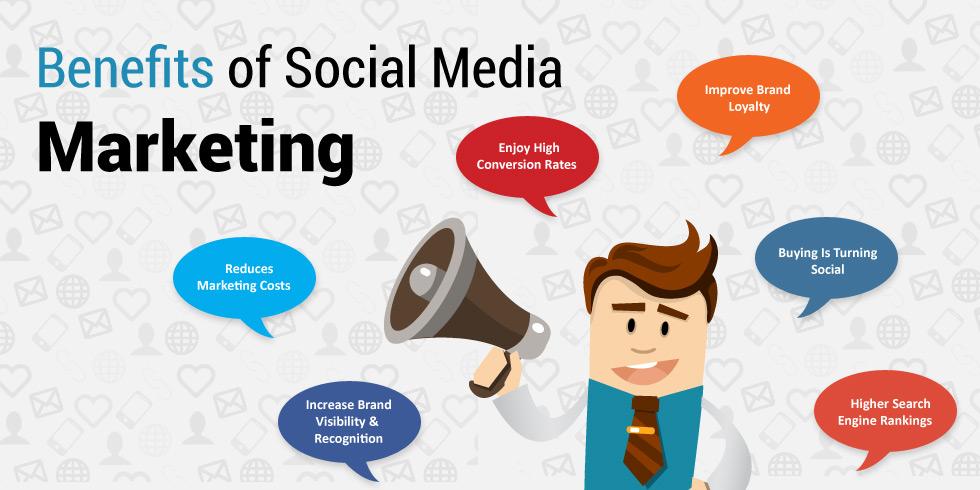With over 3.5 billion active users, social media is a potentially large customer base for businesses. It represents the marketing channel as the internet evolves into a key venue for business. The rising rate of internet sales has seen a similar increase in the interest in brands online.
More people than ever before are looking online to reach their preferred brands for customer service, as well as information and interaction. Brands can take advantage of this high level of interest, which may be up to 80% in some social media platforms, to drive sales and develop a large online following. If carried out strategically, social media can be key to helping you achieve your business goals.
What is social media marketing?

Social media marketing is the strategic use of advertising measures on social media such as free and paid ads, awareness campaigns and promotions to help meet some business goal. Even storage companies can’t ignore the importance of storage marketing services. This goal should be measurable, such as increased visibility levels, higher sales and conversions, or more engagement and interaction.
How can social media marketing benefit your brand?

Social media can be a great avenue for marketing your brand. It offers access to large user numbers, with targeting tools to help brands reach their desired audiences better. Paid advertising options, such as the automatic likes on Instagram which you can visit autolikesig, could help your brand’s marketing strategy have a greater impact than expected. How will social media marketing help your brand meet its goals?
A strategic social media campaign will help increase brand awareness by boosting visibility levels. More people will be able to see your marketing campaign, and could develop an interest in your brand. With the right social media strategy, you will notice higher follower and traffic levels, which could translate to better sales.
Social media marketing will also shape the frequency and content of your posts, which will maximize user interest in your brand. You will be able to create a great content policy, as well as develop a posting schedule to help you maximize on high user numbers.
Social media marketing offers brands the ability to monitor return on investment for their advertising campaigns. For traditional media such as radio, print and TV, this is impossible beyond knowing about viewer numbers. Social media marketing allows brand owners to measure the performance of their marketing campaigns, as well as help iron out any deficiencies in the current marketing strategy for better future campaigns.
Social media marketing will also help develop a policy for interaction with clients. The higher engagement generated will result in positive brand association, with more users willing to trust your brand because of the open nature of interaction. Aside from boosting user confidence, it will also help your brand maintain professionalism in interactions with users who have negative comments or complaints, which will help fortify your great reputation.
How can you run a successful social media marketing campaign?

You need to be strategic and thorough with your social media marketing campaign to be successful. Few campaigns succeed on luck and organic interest from users. You need to develop a great social media campaign to meet your target audience’s interests and tastes. You also need to keep track of user interactions and engagements to understand the performance of a social marketing campaign and find areas to improve. Here are a few tips on how to run a successful social media campaign
Research thoroughly
You will need to understand your potential clients’ tastes and preference to develop a successful campaign. You need to understand how they may react to different aspects of your campaign, so it is
important to run your ideas through a sample group for feedback.
Research also includes looking into previous successful and unsuccessful campaigns to know what elements might affect the performance of your own campaign and how to improve the likelihood of success. You will need to find the right platform for your social media campaign, and must develop different but suitable social media campaigns for incompatible platforms.
Delegating functions

You will be more likely to succeed if your social media marketing team is synchronized. Managing multiple social media platforms can be challenging, and may cause overlapping functions for members of a team. You could lead your brand to developing a bad reputation because of an inability to respond to users on time, which may result from poor management of your social media activity.
Posting regularly
You will not achieve success by making a post to your followers. You need to target increased metrics to help you achieve your goals, such as increased visibility and higher conversion rates by sharing more posts. Increased brand awareness that may result from your posts will boost these aspects of growth for your brand. While posting regularly is ideal, you should keep your content diverse to ensure followers are interested in your brand. Regular diverse and interesting posts will help attract and keep followers, which could help your brand grow faster.
Coordinating activity across different platforms

Running a social media marketing strategy on one platform could be limited in terms of reach. You should run your social media marketing strategy across different platform, as long as you can maintain efficient user engagement in these platforms as well. Users will be more likely to find your brand trustworthy and authentic if they can find multiple versions of your social media campaign. You should make sure to maintain high user interaction and engagement levels to avoid missing out on an opportunity to create brand awareness. Your campaign will not be as successful on one platform as it
can be across a number of platforms.
Monitoring analytics
You will be able to monitor the performance of your social media marketing campaign through a number of analytic tracking tools which are available for free. You should consider your business goals when developing your social media campaign, as well as understanding how to monitor the rate of returns using analytic tools. It can be a great way for brands to monitor user engagement levels, as well as reaction to new content or products. It can also help brands find their biggest revenue sources, which can be combined with targeted advertising to drive up conversions.

